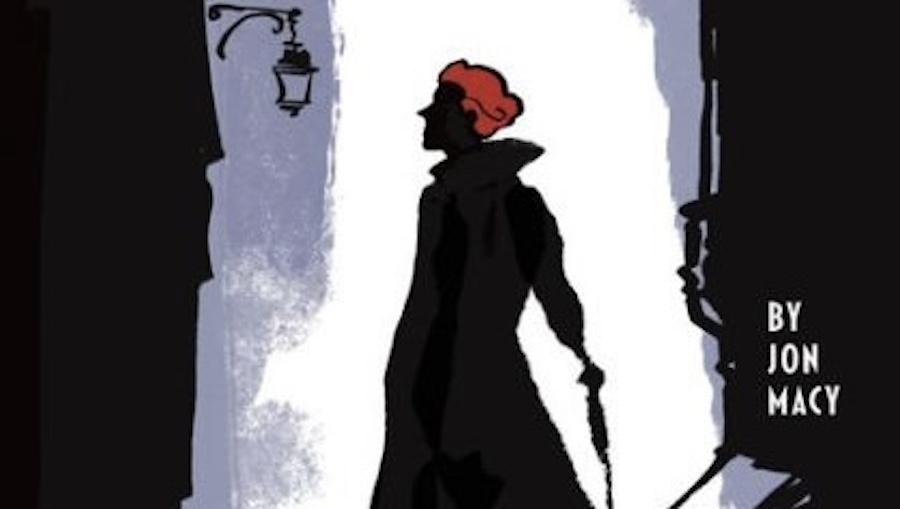The following is an interview with Jon Macy regarding the upcoming release of the biographical graphic novel, Djuna, based on the life of novelist Djuna Barnes. In this interview, Fanbase Press Editor-in-Chief Barbra Dillon chats with Macy about his creative process in bringing Djuna’s life and career to the page, what he hopes that readers will take away from her journey, and more!
Barbra Dillon, Fanbase Press Editor-in-Chief: Congratulations on the upcoming release of Djuna through Street Noise Books! What encouraged you to share Djuna’s story with readers?
Jon Macy: Djuna inspired me to keep going with my writing. She is the underdog punk rebel saint of all those who ever wanted to be a star. She never gave up on her dreams, even when she was down and out.

People get caught up in the excitement of passionate people and it creates a personal energy field. People like Djuna radiate out and create their own tiny subculture. If you wear a Wonder Woman t-shirt at comic con, or a little known punk band at a concert, tell me you don’t meet all your folk. You share that love, and it feels good when it comes back to you. There is a loner goth dark academia following Djuna around.
My friend Justin Hall said, “You know perfectly well how many geniuses never see success.” He was right. Djuna needed the star treatment, and I was the one to bring it. That is why I needed to write this book.
BD: As a writer and illustrator, what can you tell us about your creative process in both researching and crafting the visual narrative behind this story?
JM: I see comics as writing with words and pictures, so I work with both at the same time. I go back and forth between them, but really, it’s all the same to me – it’s all lines on paper. I am a slow writer and obsessive. It takes five years to make a book. It takes even longer to shake it off. When I was done with Djuna, I didn’t know if I needed a publisher or an exorcist.
I do have to say that the research is the most pleasurable part. I feel like a detective tracking down clues, and making sure I got all the door knobs right.
BD: At Fanbase Press, our #StoriesMatter initiative endeavors to highlight the impact that stories can have on audiences of various mediums. How do you feel that Djuna’s story may connect with and impact readers?
JM: Djuna overcame horrific narcissistic abuse to become one of the elite of 1920s literary Paris. But then she dropped out of society and became a recluse. A few years ago, we were all shut-ins. Mental unwellness and isolation can be a not shared, but equally understood, experience. We can still connect with each other, and it’s the ones, like Djuna, who write books or draw comics that are reaching out a hand blindly. It’s the reaching that is the beautiful part. If you find a book that gives you hope, write to the author. They would love to hear from you.
BD: What makes Street Noise the perfect home for this book?
JM: Street noise is scrappy, tough, and punk rock. Djuna needs that kind of street cred. I want people who are willing to go out on a limb with me when I do radical things. Who is going to remember a person who does things only half way? You take the risks and the lumps as they come.
BD: Are there any other projects on which you are working that you would like to share with readers?
JM: There is something I’m working on, but it’s top secret. A noir thriller set in the world of 1970s experimental jazz and early electronica.
BD: Lastly, what would you like to tell fans who want to learn more about Djuna and your other work?
JM: I want everyone to read the works of Djuna Barnes, and all the great graphic novels coming from Street Noise Books. I love the past and discovering old LGBTQ icons that have been forgotten. You have no idea how messed up history really is.

